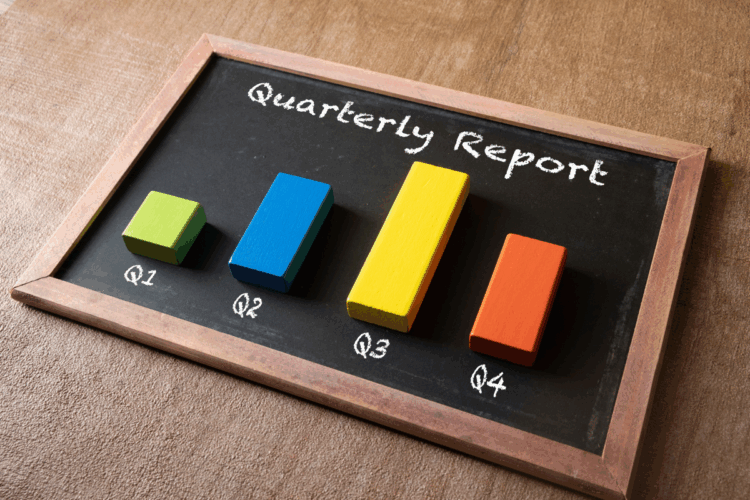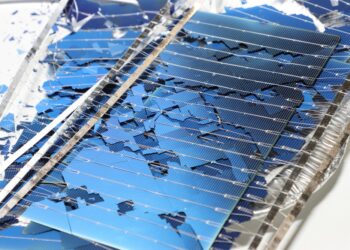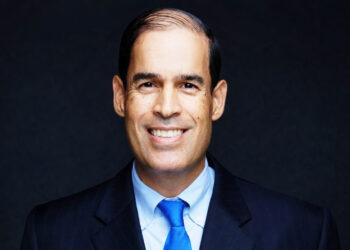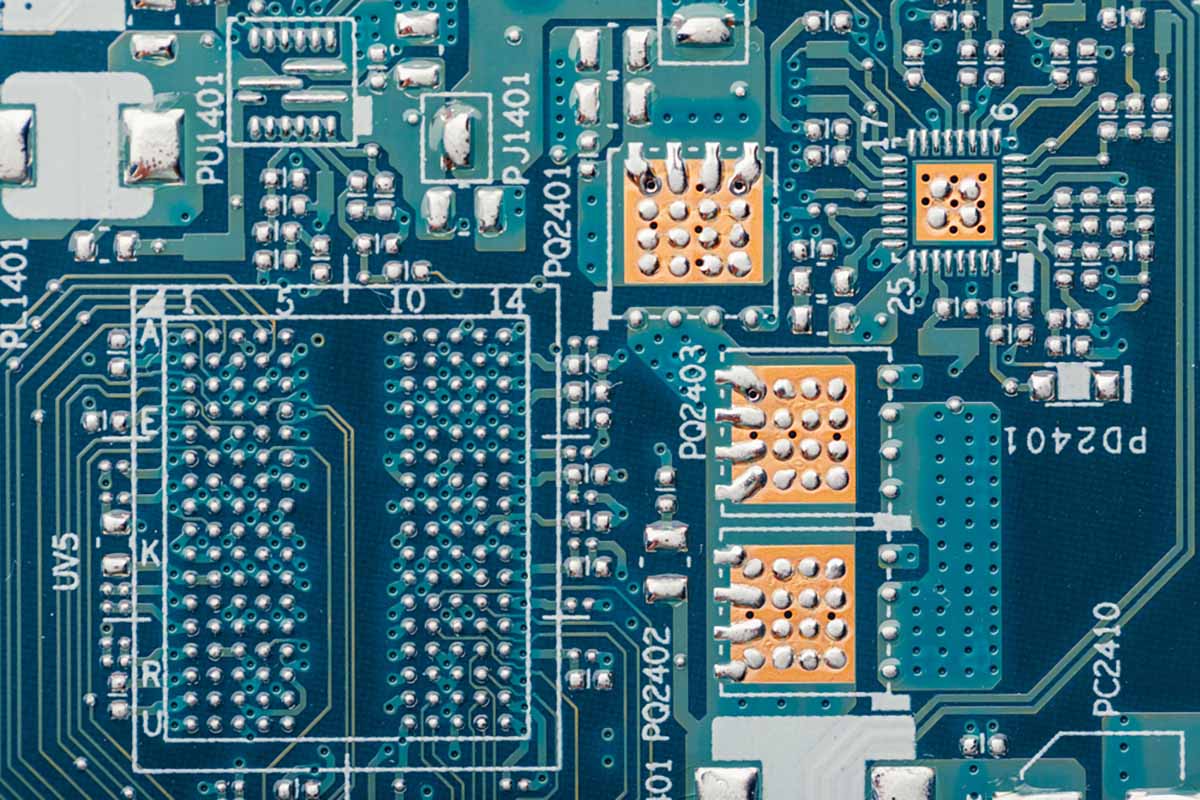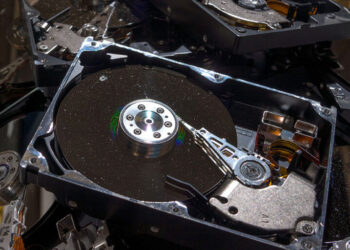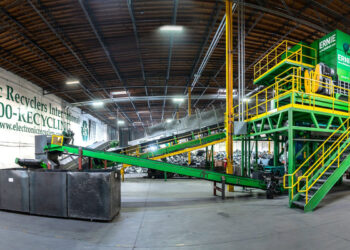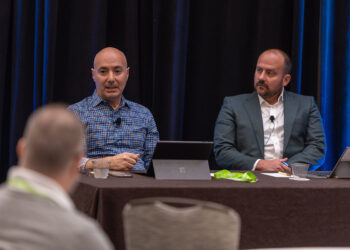Iron Mountain says used electronics pricing was relatively steady during the third quarter, flattening out revenues for the company’s asset lifecycle segment. But Envela Corporation found decreased volumes of incoming electronics and solar panels hurt results at its ITAD and e-scrap companies.
The following are takeaways from recent earnings disclosures from Iron Mountain, Envela Corporation and Li-Cycle Holdings.
Iron Mountain
The data center decommissioning and ITAD service provider reports that pricing for used electronics remained stable during the third quarter after hitting a low point in February.
Iron Mountain’s electronics reuse and recycling activities are housed under the company’s Asset Lifecycle Management (ALM) business. Iron Mountain recently reached a deal to acquire Regency Technologies in a deal worth at least $200 million. That acquisition will greatly increase the size of the ALM business.
According to the quarterly financial report, the ALM business brought in $42 million in revenue during the second quarter. That was the same amount it brought in during the second quarter of 2023. But on a year-over-year basis, it was down 30%.
“We are seeing positive momentum across all three verticals of our ALM business: hyperscale, enterprise and OEM. ALM bookings have been running ahead of our projections,” Barry Hytinen, chief financial officer for Iron Mountain, said during a Nov. 2 conference call with investors.
Pricing for used electronic components was also consistent from the second to third quarter, Hytinen said. Since then, however, prices have begun to rise.
“At this point, in the fourth quarter, there are indications that component pricing is beginning to recover,” Hytinen said. “For example, since the end of the third quarter, we have seen the pricing for memory rising week over week with it now up nearly 15% on a sequential basis. As we’ve mentioned on our last call, industry analysts have been forecasting rising prices by late this year, with continued recovery in 2024.”
But looking forward, the company plans to assume a fairly conservative forecast for prices, said William Meaney, president and CEO of Iron Mountain.
“Whilst industry projections are for significant price improvements in late 2023 and throughout 2024, we have continued to take a prudent perspective and are only assuming marginal incremental pricing improvement for the remainder of the year,” Meaney said during the call.
Envela Corporation
A decrease in the amount of material supplied by cable operators and a drop in the volume of reusable and end-of-life solar panels put a dent in this Dallas-based company’s financial results.
Envela has two distinct segments: a consumer segment that includes retail sales of jewelry and other luxury items, and a commercial segment that involves electronics reuse and recycling.
The commercial segment includes the following companies: e-scrap processor Echo Environmental, ITAD companies Avail Recovery Solutions and ITAD USA, device reseller Teladvance, and mobile phone trade-in firm CExchange. All are based in Carrollton, Texas, except for Avail Recovery Solutions, which is located in Chandler, Ariz.
During the third quarter, Envela’s commercial segment tallied revenues of $9.39 million, down 36% year over year, and gross profit of $6.15 million, down 24% from the prior-year period.
The commercial segment is broken down into the electronics resale business and recycling business. The resale business brought in $6.99 million in revenue and $4.80 million in gross profit during the third quarter, down 39% and 26% year over year, respectively. The recycling side reported revenues of $2.39 million and gross profits of $1.34 million, down 26% and 18% year over year, respectively.
Both the resale and recycling revenues decreased because of post-pandemic “normalization of product from cable operator clients” and a decrease in both reusable and end-of-life photovoltaic modules, according to the quarterly financial report.
In a press release, John Loftus, chairman and CEO of the company, said “the timing of certain recycling orders from major electronics companies,” as well as “customary quarter-to-quarter fluctuations,” affected commercial segment revenue during the quarter.
“Our Commercial Division has long-term relationships with some of the leading technology companies in the world,” Loftus stated in the release. “Although we see fluctuations in volumes – particularly given we are still a relatively small company – our long-term outlook remains positive given strong industry tailwinds. The global e-waste problem continues to worsen due to the shortening life cycles for electronics and the push for new technologies with increased efficiency. In turn, this provides a tremendous opportunity for Envela to continue to be a re-commerce partner of choice.”
Li-Cycle Holdings
The lithium-ion battery recycling startup disclosed on Nov. 13 it has hired investment bank Moelis & Company to serve as a “financial advisor to assist in evaluating financing and strategic alternatives for the Company.”
The move is related to Li-Cycle’s recent announcement that the company is suspending construction on its planned Rochester, N.Y. recycling hub because of rising costs that “significantly exceed” the project budget of $560 million. That Oct. 23 announcement sent the company’s stock price tumbling.
In a Nov. 13 release, Toronto-based Li-Cycle Holdings said it has “performed an initial analysis of options for completion of the Rochester Hub, and we are taking steps to conserve cash.” The U.S. Department of Energy (DOE) earlier this year announced that it made a $375 million loan commitment to Li-Cycle.
In the latest release, Ajay Kochhar, Li-Cycle’s president and CEO, said the company is working to satisfy the DOE’s conditions for tapping that money as the company completes a review of its options for the Rochester project. Based on an initial analysis, and depending on the options Li-Cycle selects, the Rochester project could end up cost in the range of $850 million to $1 billion, the announcement states.
Through Sept. 30, Li-Cycle has already spent about $301 million on the project, Kochhar said during a Nov. 13 conference call with investors.
On Nov. 1, Li-Cycle began implementing a plan to cut costs and preserve cash, by reducing corporate staff, pausing production at its Ontario, Canada “spoke” facility and implementing a plan to manage lower levels of black mass and equivalents produced at its remaining operating spoke locations, according to a financial disclosure.
In terms of financial results for the third quarter, Li-Cycle said its product sales and recycling services before non-cash fair market value adjustments totaled $4.7 million, down 4% year over year. The decrease was primarily because of lower sales volumes and lower prices for cobalt and nickel, partially offset by a higher value product sales mix and higher recycling fees.







